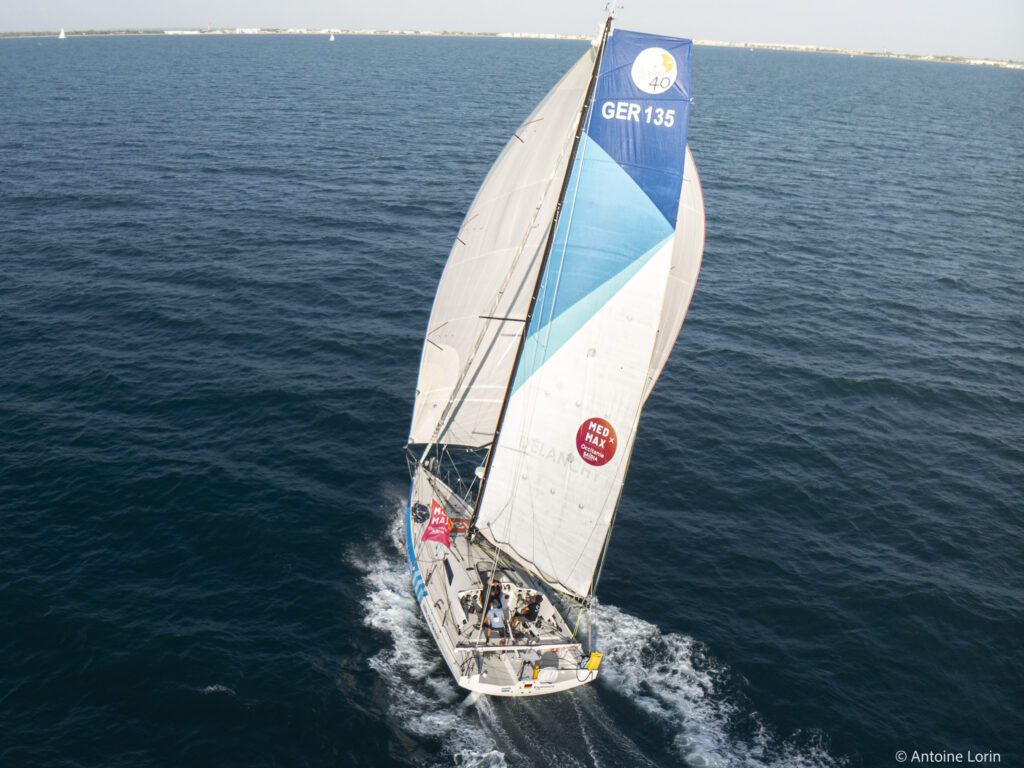Publication date: 04/02/2025
Sailing across the oceans while pushing the limits of performance in Class40 and promoting a responsible approach to sailing—that is the mission undertaken by two passionate sailors, Christian Kerl and Patrice Pou-Pupp, with the Blue Planet Racing Team project.
For the readers of our website, Christian – known as “Chris” – has kindly agreed to answer several of our questions.
Chris, could you introduce yourself and tell us about your journey as a sailor?
“I am originally from southern Germany and I am 55 years old. From a young age, I have had a special attraction to the sea. I started sailing on German lakes, where I sailed small dinghies. And my passion has only grown over time!
At the age of 22, I bought my first second-hand sailboat in Turkey. I lived on board for a year, sailing between the Eastern Mediterranean and Norway, enjoying this quiet way of life and travel.”
How did you discover offshore racing, and more specifically, the Class40?
“My transition to offshore racing happened gradually. In 2019, while looking for a boat that combined performance and accessibility, I bought my first Class40: a Pogo40 S1.
I sailed the boat from the Atlantic coast to Greece, then participated in my first race: the Aegean 600. Against all odds, my partner and I finished second in the double-handed category!
This result sparked a true passion for competition in me.”
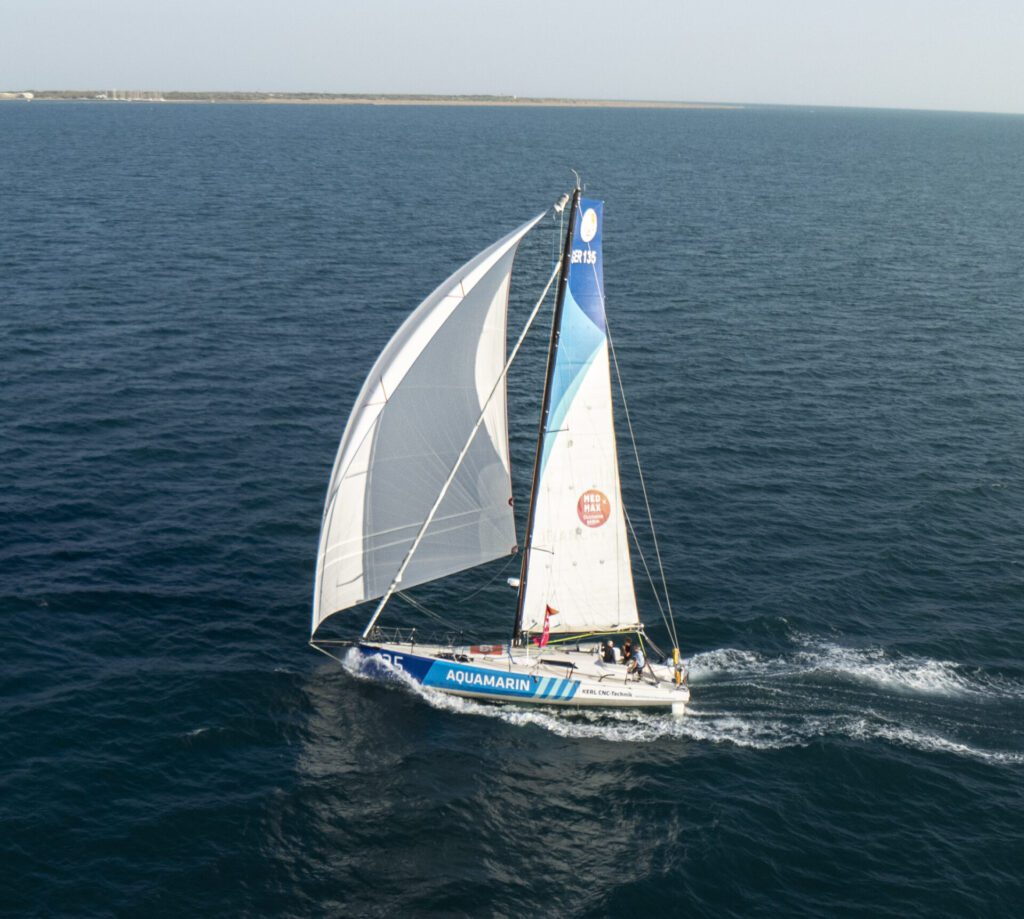
“Subsequently, I participated in other races and worked intensively on making my boat compliant with the new Class40 standards. The process is demanding, but it is mandatory in order to take part in official regattas.”
Can you tell us about your current boat, Aquamarin?
“After my first experiences in offshore racing, I looked for a second, more modern Class40 to pursue my ambitions. In Lorient, I found Aquamarin: a Pogo 40 S3 designed by the Finot-Conq architectural firm and launched by the Pogo Structures shipyard in 2014. It perfectly met my expectations in terms of budget and sporting goals.”
“The 40-foot monohull already had an impressive pedigree: it had participated in several transatlantic races, proving its performance, robustness, and speed each time. It is a well-balanced boat, perfectly suited to the challenges of offshore racing.”
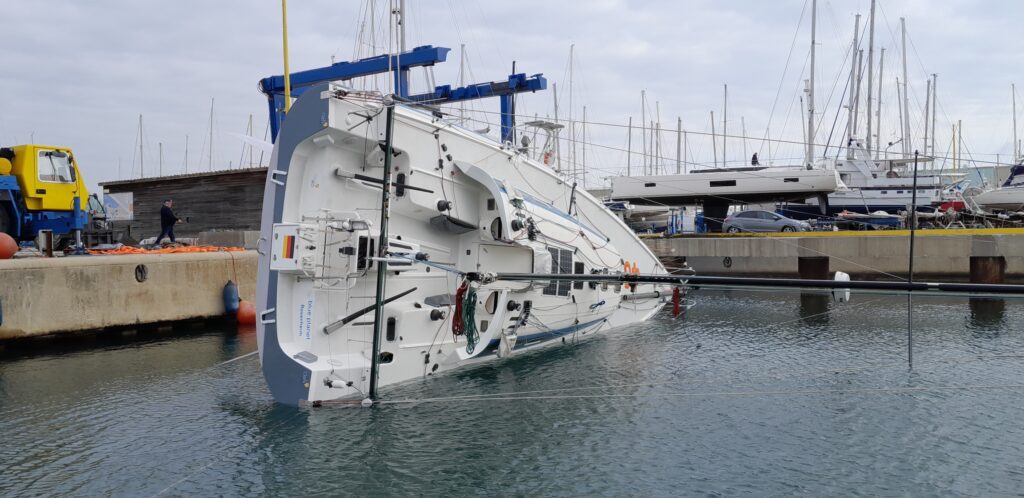
‘Since the acquisition with Patrice, co-skipper, we have made several modifications to optimise the performance of Aquamarin. Here are several works that have been carried out in Port Napoléon, now the boat’s home port:
- Class40 certification
- Weighing the boat
- The 90° test
- Increased buoyancy
- Replacing the rigging
- The textile prop
- The entire antifouling layer has been renewed and sprayed as new.”
What are your racing goals for the next few years?
“Patrice and I have an ambitious racing programme, structured around several major events:
- In October 2025, the 17th edition of the Transat Café L’OR (formerly the Transat Jacques-Vabre, also known as the Route du Café), the most important double-handed race in the world.
- The 13th edition of the Route du Rhum, in 2026.
The Transat Café L’OR is our main objective at the moment: it is a legendary race, in double-handed mode, which requires rigorous preparation and excellent cohesion between the skippers. To qualify, we must complete at least one race of more than 1000 nautical miles (1852 km distance) as well as several shorter regattas. We plan to take part in all the races of the Class40-Méditerranée Trophy!
Another challenge is the funding: we need to raise around 100,000 euros to cover the costs of the race. So we are actively looking for sponsors.”
Can we find out more about your project’s environmental commitments?
“The world of sailing naturally favours a sustainable approach: we sail with the wind, without an engine, and we strive to limit our environmental impact by optimising our consumption of resources.
On board Aquamarin, the Class40 #135, Patrice and I want to go further: we want to show that it is possible to combine performance and respect for the environment. Our project aims to raise public awareness of environmental issues, while proving that a high-level race can be run with respect for nature.
As part of this approach, Blue Planet Racing Team supports various initiatives to protect the oceans, such as those of Ocean Care, an organisation that works to preserve marine biodiversity, particularly cetaceans.”
Why did you choose Port Napoléon as the home port for Aquamarin?
“I discovered Port Napoléon several years ago, thanks to a former co-skipper: he had chosen to moor his Pogo 10.50 in Port Napoléon and recommended the place to me.
At Port Napoléon, I appreciated the quality of the infrastructure, particularly for winterisation, handling and maintenance work. The berths are remarkably stable, which is a fundamental criterion when working on a racing boat!
The very pleasant atmosphere of the marina is also an asset: the atmosphere is warm and family-oriented, the technical team is competent and always available to help. For managing a project like Blue Planet Racing Team, this is a real plus.
Finally, the geographical location is ideal for us: we are perfectly situated for training, and only a stone’s throw from the starting line of Mediterranean races.”
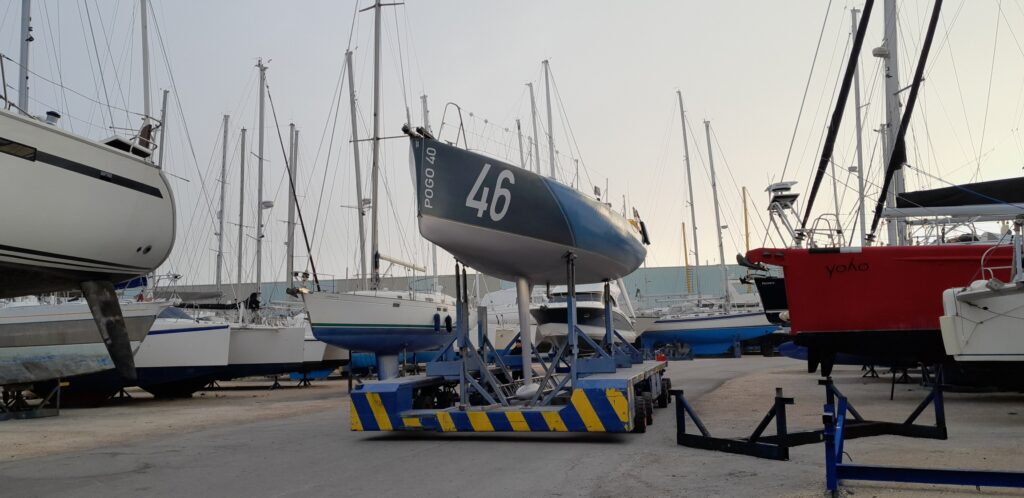
What would you like to convey through your project? Do you have a message to get across?
“Beyond the sporting adventure, Blue Planet Racing Team represents a vision and philosophy of sailing. We want to show that it is possible to live your dreams without pursuing selfish goals, by progressing with nature, in nature, and treating it with the utmost respect. You can achieve great things with passion, commitment and respect for the environment!”
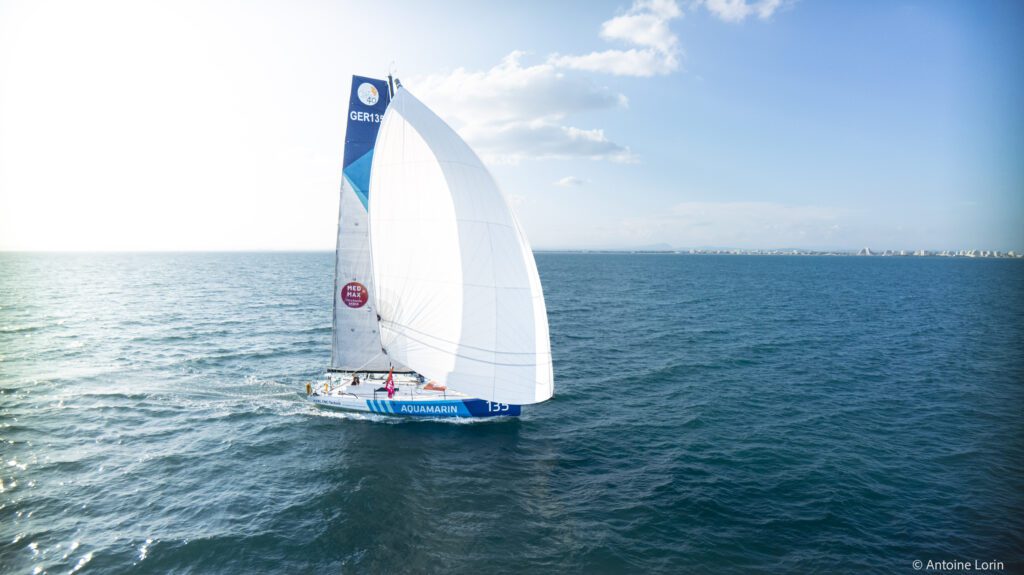
“We hope to inspire other sailors and enthusiasts. We invite anyone who would like to follow our adventure to join us and support our project!”

